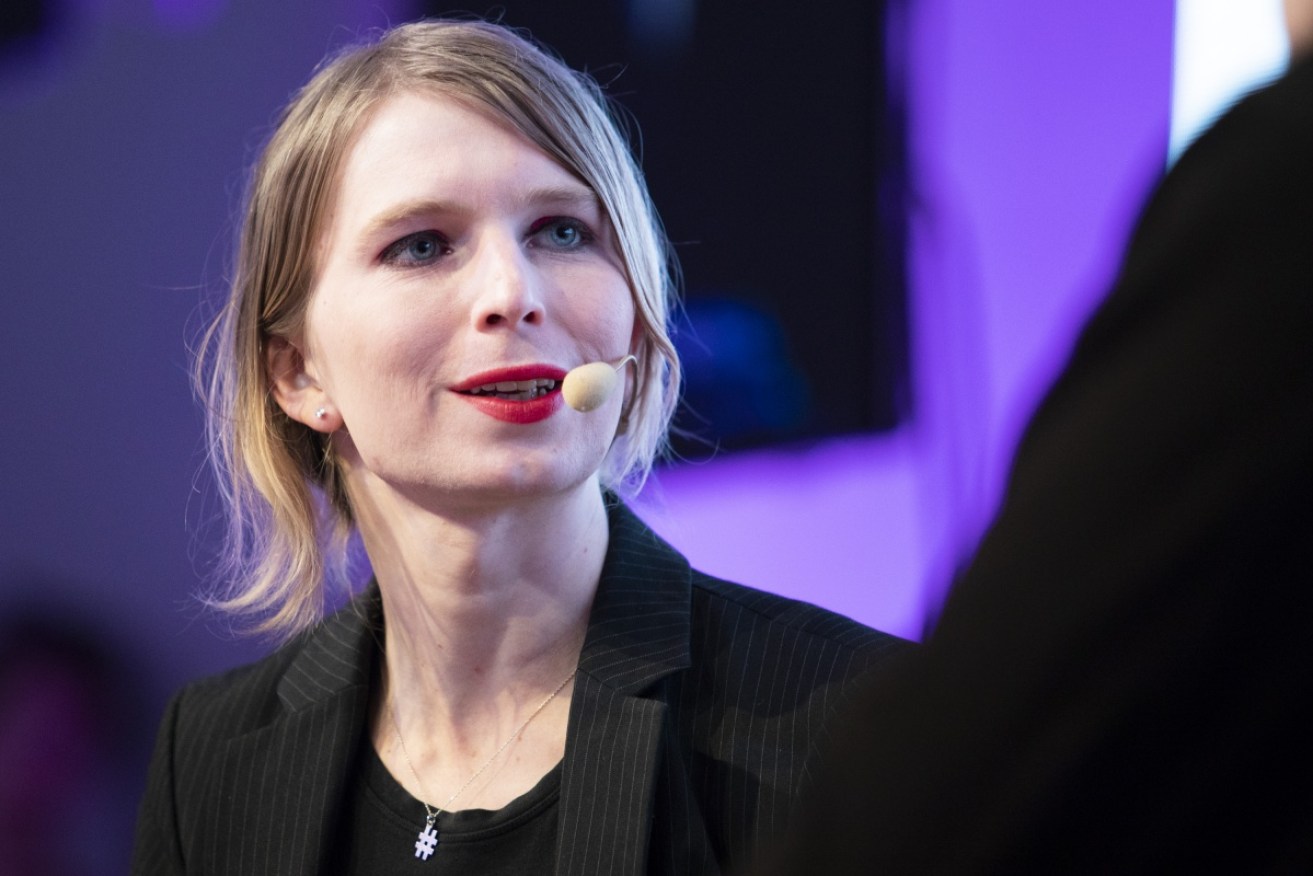Out of prison and on a mission, Chelsea Manning yearns for that elusive feeling of safety


US whistleblower Chelsea Manning will be visiting Australia and New Zealand in September to give various talks. Photo: Getty
Since being released from prison last year, the former US soldier-turned-whistleblower Chelsea Manning admits that her life in some ways is still very much like it was behind bars.
Speaking to The New Daily from Washington DC, ahead of her Australian and New Zealand tour this month, the 30-year-old activist, said she struggled to come to terms with the new reality of the United States at a time of polarising political ideals and social unrest.
“I just came out of prison and, yes, it is better but it’s very much closer to a prison than what I expected it to be,” Ms Manning told The New Daily.
“We’re surrounded by surveillance cameras and a heavy police presence especially around migrant communities.”
Ahead of Ms Manning’s Australian visit, it was announced the federal government was preparing to ban her from entering the country.
The Australian organiser of her speaking tour, Think Inc, had written to supporters asking them to lobby newly installed Immigration Minister David Coleman.
“We have just received a Notice of Intention to Consider Refusal under s501 of the Migration Act from the Australian government in regards to Chelsea’s visa,” the company’s director Suzi Jamil wrote to supporters.
While New Zealand has granted Ms Manning permission to apply for a visa, organisers of the Sydney Opera House’s Antidote festival, where she was supposed to make her first appearance on Sunday, confirmed that the Home Affairs department wouldn’t make its decision on her visa in time.
Ms Manning will now be interviewed from Los Angeles live via satellite by journalist Peter Greste.
‘Spying on citizens’
Ms Manning, who spent seven years behind bars, including 11 months in solitary confinement, for sending nearly 750,000 classified military and diplomatic documents to WikiLeaks in 2010, said governments and companies were spying on its citizens.
“The biggest danger trickles down to those who are tracking our every movement, including our phone calls and metadata.”
“It’s important for everyone to take those extra steps to protect yourself, by using end-to-end encryption with phone calls and emails.”

Chelsea Manning on the campaign trail. Photo: AAP
In August, the federal government unveiled new laws to force tech giants to disclose the encrypted information of suspected terrorists and criminals.
The reforms would also allow police conducting a normal search of a person, like a frisk search, to compel the person to unlock their mobile phone with a password or fingerprint.
Ms Manning said these laws had striking similarities to Britain, where legal structures were beginning to replicate the Official Secrets Act.
“We can’t assume that this is a benevolent force of good – when in reality these systems tend for corruption and abuse over time.”
Life in prison
Former US president Barack Obama commuted Ms Manning’s 35-year prison sentence at the official end of his presidency in January 2017.
She was serving the longest sentence ever imposed for disclosing government secrets.
In her commutation application, Ms Manning said she had not imagined she would be sentenced to the “extreme” term for which there was “no historical precedent.” (There have been only a handful of leak cases, and most sentences are one to three years.)
Ms Manning’s defence lawyer at her military trial, David Coombs, said that Obama’s commutation would put out a positive message. “It gives the message that we will value the people who bring important information into the public domain and that we will take into account their reasons for doing so.”
When Ms Manning was sentenced in 2013, she announced she was transgender and changed her name to Chelsea, she was still forced to serve her sentence at the male military prison in Fort Leavenworth, Kansas.
Ms Manning struggled to transition to life as a woman while enduring a bleak existence at a male prison.
“It was very restrictive and abusive. It’s an intimidating environment from the guards, but not the inmates – I want to be clear on that.”
She said there needed to be better access to mental health providers in prisons.
“It’s very difficult particularly for trans women who need to see a psychiatrist or psychologist.
“There are so many hoops that people have to go through to get this type of support and that’s the biggest complaint that I’ve seen.”
Ms Manning’s activism
Since Ms Manning’s release from prison, she has taken part in several protests including New York’s gay pride parade, amid protests against US President Donald Trump.
“I’ve been homeless, I’ve been to war, prison, I’m queer and trans,” Ms Manning said.
“All of these experiences have really opened my eyes to the importance of standing up and fighting, and also for solidarity,” she added.
Ms Manning spoke about what she foresees for her future
“I imagine a world for me at least where I can feel safer with friends, because right now it’s so hard to maintain those things.
“As a trans woman, we’re constantly having to defend ourselves and all I want is that sense of safety while living within in a community ,” she added.
Ms Manning’s Australian tour will start on Sunday, September 2 to Tuesday, September 11. Tickets: thinkinc.org.au








